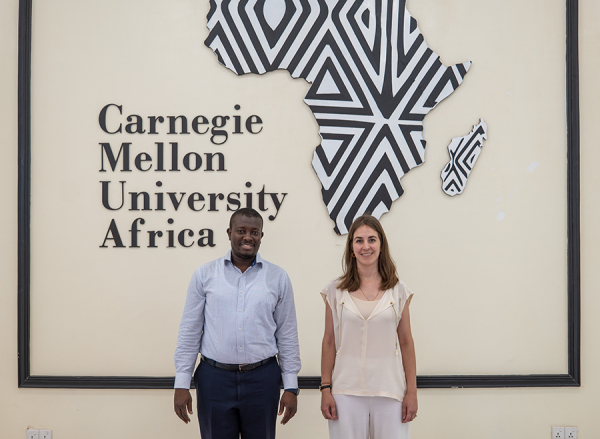Sub-Saharan Africa has one of the lowest internet penetration rates globally. This limited connectivity underscores the importance of locally driven solutions, such as the Upanzi Network, which aim to develop accessible, culturally relevant technologies tailored to African contexts.
The Carnegie Mellon University Africa (CMU-Africa) announced, on November 20, the expansion of a groundbreaking initiative aimed at fostering secure, inclusive, and resilient digital public infrastructure across Africa.
CMU-Africa’s director, Conrad Tucker, emphasized the importance of local context, stating, “There are no one-size-fits-all solutions for Africa. Collaboration among researchers from diverse regions is essential to create tailored digital solutions.”
Launched in 2021 at CMU-Africa’s Kigali campus, the Upanzi Network, an Africa-based collaboration of engineering research labs, has pioneered research in critical areas such as digital identity, payments, cybersecurity, artificial intelligence, and data governance. Building on this foundation, the initiative is now partnering with leading universities across the continent, including Al Akhawayn University in Morocco, the University of Botswana, and the University of the Witwatersrand in South Africa.
Each partner lab has been awarded a one-year seed grant to support research tailored to specific regional needs. In Morocco, Al Akhawayn University is establishing a lab to enhance governance through digital transformation, prioritizing efficiency, transparency, and inclusivity in public services. In Botswana, researchers at the University of Botswana are utilizing IoT technologies to address challenges in farming, such as animal health and water management, aiming to improve agricultural productivity and engage youth through targeted workshops.
Meanwhile, the University of Witwatersrand in South Africa is focusing on multilingual learning technologies to overcome social and educational barriers while advancing digital literacy across diverse linguistic contexts.
The network’s researchers will convene this week at a symposium focusing on digital identity and cybersecurity, underscoring the initiative’s commitment to addressing Africa’s most pressing digital challenges.
The United Nations Development Programme (UNDP) highlights digital public infrastructure (DPI) as a key enabler of digital transformation and efficient public service delivery. Properly implemented, DPI supports national priorities and accelerates progress toward Sustainable Development Goals (SDGs). Governments, donors, private entities, and civil society have a shared opportunity to shape inclusive and impactful digital ecosystems.
The Upanzi Network’s initiatives address critical challenges in digital infrastructure and human development, ensuring Africa’s digital future is inclusive, resilient, and innovative. This expansion represents a significant stride toward empowering Africa’s socio-economic development through localized, innovative, and inclusive digital infrastructure.
Hikmatu Bilali



















